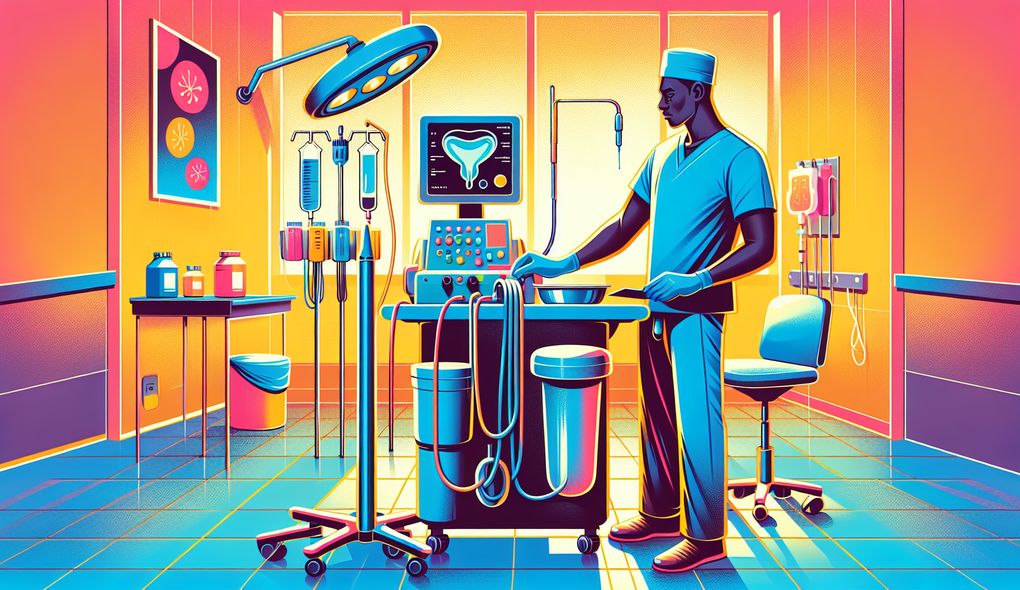How would you monitor patients' vital signs and symptoms related to urologic conditions?
JUNIOR LEVEL

Sample answer to the question:
As a Urology Nurse, I would monitor patients' vital signs and symptoms related to urologic conditions by regularly checking their blood pressure, heart rate, temperature, and respiratory rate. I would also assess their pain levels and monitor for any signs of infection or complications. Additionally, I would observe their urinary output and assess the color and clarity of their urine. By closely monitoring these vital signs and symptoms, I can identify any changes or abnormalities and promptly report them to the urologist. This will help ensure the patients receive timely and appropriate interventions.
Here is a more solid answer:
As a Urology Nurse, I would apply my strong clinical skills and knowledge of urologic conditions to monitor patients' vital signs and symptoms related to their urologic conditions. This would involve regularly checking their blood pressure, heart rate, temperature, and respiratory rate. I would also assess their pain levels using a standardized pain scale and monitor for any signs of infection, such as fever or changes in the color or odor of urine. Additionally, I would be attentive to any complications that may arise post-surgery, such as bleeding or swelling. Communication is key in this role, and I would ensure that patients and their families are educated on their urinary tract health, treatment plans, and preventive care. I would explain the purpose of vital sign monitoring and address any concerns or questions they may have. Furthermore, I understand the importance of collaborating with the urologist and other healthcare professionals as part of a team. I would share my observations and findings with them, report any changes in patients' vital signs or symptoms promptly, and work together to develop the most appropriate care plan for each patient. With a compassionate bedside manner and a strong patient advocacy skillset, I would provide the necessary support and reassurance to patients throughout the monitoring process.
Why is this a more solid answer?
The solid answer provided more specific details and examples to demonstrate the candidate's skills and knowledge in urologic conditions, as well as their ability to effectively communicate and work as part of a team. The candidate highlighted their use of standardized pain scales, awareness of post-surgery complications, and their understanding of the importance of collaboration with the urologist and other healthcare professionals. However, the answer could further improve by providing concrete examples of patient education and patient advocacy.
An example of a exceptional answer:
As a Urology Nurse, I would utilize my expertise in urologic conditions to thoroughly monitor patients' vital signs and symptoms, ensuring their safety and well-being. To accurately assess their condition, I would perform a comprehensive initial assessment, carefully noting their medical history, current symptoms, and any risk factors. During routine vital sign checks, I would employ various methods, such as automated monitors or manual auscultation, depending on the patient's needs and condition. By conducting a detailed pain assessment using validated pain scales, I would effectively manage their pain and provide appropriate interventions as needed. Additionally, I would leverage my knowledge of evidence-based practice to identify potential complications, closely monitoring for signs of infection, such as elevated temperature or increased white blood cell count. Recognizing the significance of patient education, I would take a patient-centered approach, tailoring my teaching to their individual needs and preferences. I would utilize visual aids, provide written materials, and offer clear explanations to ensure their understanding of urinary tract health, treatment plans, and preventive care. As a strong advocate for my patients, I would actively involve them in their care decisions, respect their autonomy, and address any concerns they may have. Furthermore, I would foster a collaborative and cohesive team environment, actively communicating with the urologist, other nurses, and healthcare professionals to provide comprehensive care. By sharing valuable insights, promptly reporting any changes, and discussing the most effective interventions, I would contribute to optimal patient outcomes and satisfaction.
Why is this an exceptional answer?
The exceptional answer showcases extensive expertise in urologic conditions and provides a comprehensive approach to monitoring patients' vital signs and symptoms. The candidate demonstrates their ability to perform a comprehensive initial assessment, utilize different methods for vital sign checks, conduct detailed pain assessments using validated scales, and closely monitor for signs of infection. The candidate also emphasizes patient-centered education, the importance of patient advocacy, and their commitment to collaboration and communication within the healthcare team. The answer is detailed and thorough, highlighting the candidate's ability to deliver exceptional care in a urology setting. However, it could further improve by mentioning specific examples of utilizing visual aids and written materials for patient education, as well as offering more specific insights on collaboration with the urologist.
How to prepare for this question:
- Review and refresh your knowledge of urologic conditions, including bladder disorders, kidney stones, and incontinence. Familiarize yourself with the common signs and symptoms associated with these conditions.
- Practice taking thorough and accurate vital signs measurements, especially blood pressure, heart rate, temperature, and respiratory rate. Consider using simulation or mock scenarios to enhance your skills.
- Research and familiarize yourself with pain assessment tools and validated pain scales commonly used in urology. Understand the different interventions that can be implemented based on pain severity.
- Develop your communication and patient education skills. Practice explaining complex medical information in a clear and understandable manner. Consider using visual aids, such as diagrams or models, to enhance patient understanding.
- Reflect on your past experiences working as part of a healthcare team. Think about specific examples where effective collaboration improved patient outcomes. Be prepared to discuss these experiences during the interview.
What are interviewers evaluating with this question?
- Clinical skills and knowledge of urologic conditions
- Communication and patient education abilities
- Ability to manage patient care plans
- Ability to work as part of a team
- Compassionate bedside manner and patient advocacy skillset

